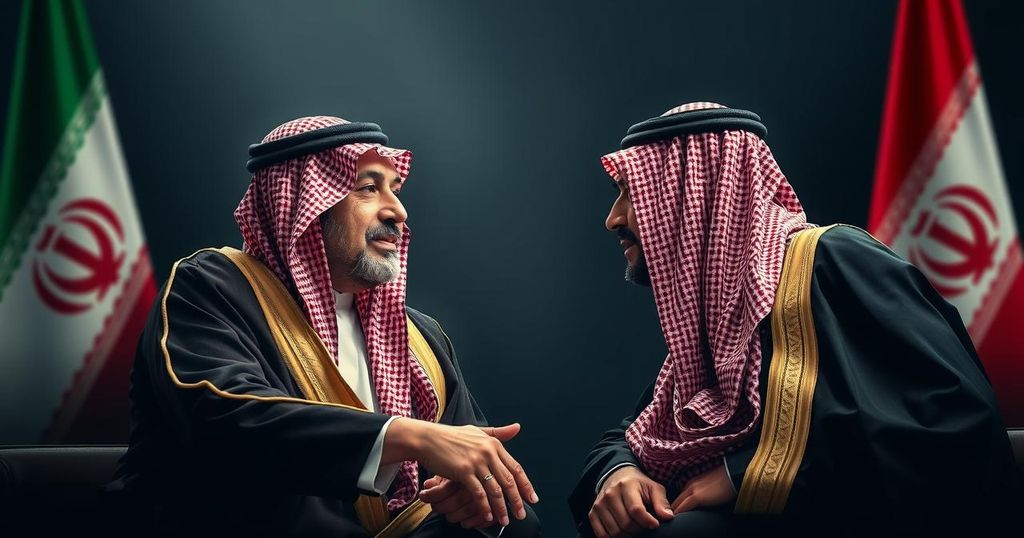Saudi-Iran Diplomatic Engagement Amid Gaza Conflict Escalation
General Fayyad al-Ruwaili of Saudi Arabia’s Armed Forces visited Iran last week, marking a significant diplomatic gesture amid escalating tensions in the Middle East. This meeting follows a thaw in relations between Riyadh and Tehran after years of hostilities. Amid calls for peace in Gaza, Saudi leaders have condemned Israeli actions while advocating for ceasefire and conflict resolution.
In a potentially transformative event for Middle Eastern geopolitics, General Fayyad al-Ruwaili, the Chief of Staff of Saudi Arabia’s Armed Forces, has visited Iran for discussions with his Iranian counterpart. This visit marks a significant post-election development as Donald Trump prepares for a second term. It follows the re-establishment of relations between Tehran and Riyadh earlier this year after a prolonged period of hostility. Notably, Saudi Arabia has yet to formalize ties with Israel, despite ongoing dialogues facilitated by senior officials, including Trump’s son-in-law, Jared Kushner. The recent meeting of state leaders in Riyadh, focused on the escalating crises in Gaza and Lebanon, emphasized a collective stance against violence, with Saudi Crown Prince Mohammed bin Salman condemning Israel’s military actions. This follows his call for an immediate ceasefire amid the intensified conflict triggered by Hamas’s assault on Israel on October 7, leading to significant casualties on both sides. The ongoing war has seen Israel’s military response causing substantial destruction in Gaza, raising international concerns regarding humanitarian conditions.
The evolving relationship between Saudi Arabia and Iran signifies a crucial shift in Middle Eastern diplomacy. Since March 2023, following a seven-year period of heightened tensions, the two nations have begun steps towards normalizing relations. This reconciliation is essential for stabilizing the Gulf region, especially with external influences, such as the United States under a potentially renewed administration led by Donald Trump. The broader context includes Saudi Arabia’s deliberations regarding future ties with Israel amid the ongoing conflict involving Palestine, particularly following significant escalations in violence.
The recent engagement between Saudi and Iranian military leaders signals a pivotal moment that could reshape the geopolitical landscape of the Middle East. As the region grapples with crises, including the conflict in Gaza, both nations assert their commitment to regional stability while condemning violence. The actions taken by Saudi Arabia, alongside ongoing global diplomatic efforts, may influence future peace initiatives and the dynamics of Israeli-Palestinian relations.
Original Source: www.india.com




Post Comment